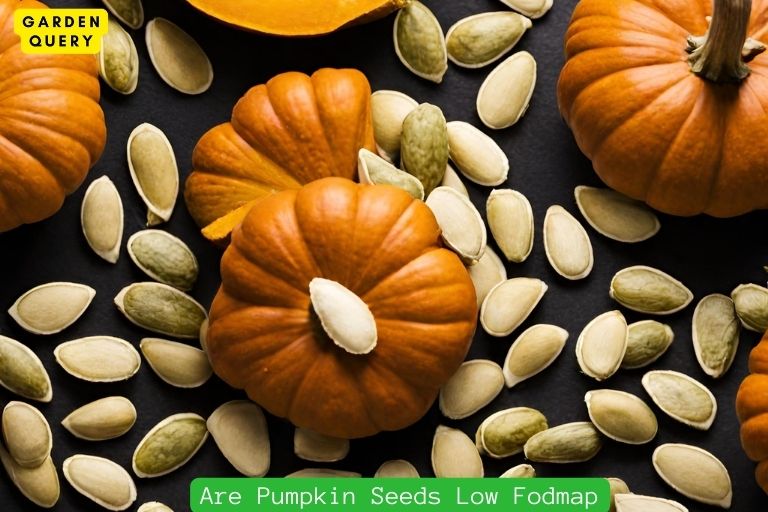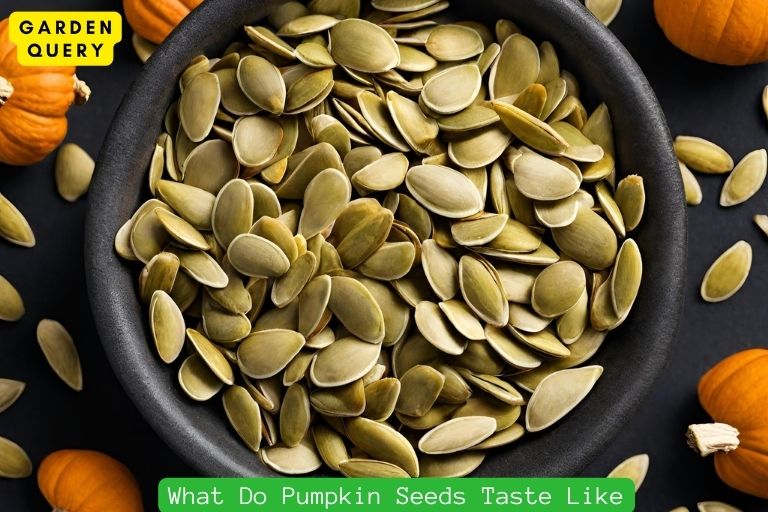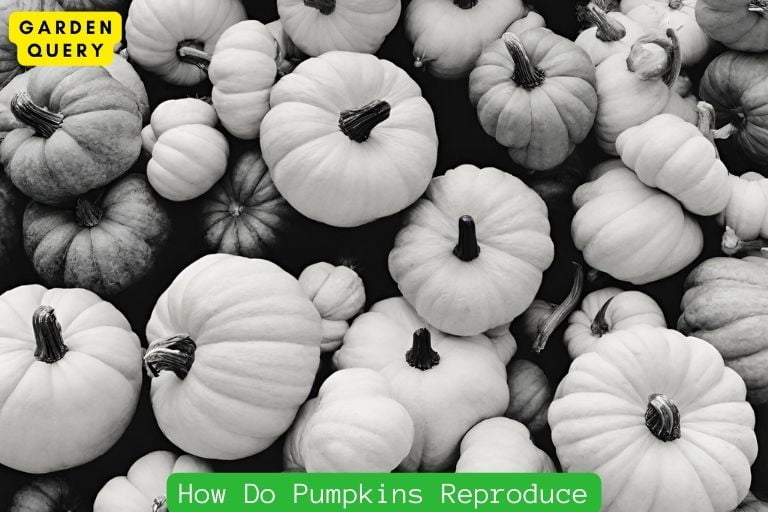Are Pumpkin Seeds Low Fodmap?
Potential FODMAP Content in Pumpkin Seeds
Are you a fan of pumpkin seeds and following a low FODMAP diet? You may be wondering if pumpkin seeds are low in FODMAPs and whether you can enjoy them as part of your low FODMAP lifestyle. Let’s dive into the details and find out!
Examining the FODMAP content in pumpkin seeds
Pumpkin seeds contain various components that can be classified as FODMAPs (Fermentable Oligosaccharides, Disaccharides, Monosaccharides, and Polyols). These components include fructans and galacto-oligosaccharides (GOS), which are known to cause digestive issues in some individuals, especially those with irritable bowel syndrome (IBS).

However, it’s important to note that the amount of FODMAPs in pumpkin seeds can vary depending on several factors, such as the processing method and portion size. Some studies have shown that roasting pumpkin seeds can reduce the FODMAP content, making them more tolerable for those following a low FODMAP diet.
To get a better understanding of the FODMAP content in pumpkin seeds, it’s recommended to consult a registered dietitian or use a FODMAP app that provides detailed information about specific foods. This can help you determine whether pumpkin seeds are suitable for your individual needs and tolerance levels.
Factors that can affect FODMAP levels in pumpkin seeds
Several factors can influence the FODMAP levels in pumpkin seeds:
- Processing: The method used to process pumpkin seeds can impact their FODMAP content. Roasting or toasting them can potentially reduce the levels of FODMAPs, making them more suitable for low FODMAP diets.
- Portion size: The amount of pumpkin seeds consumed can also affect the overall FODMAP load. Keeping your portion sizes in check is crucial to maintaining a low FODMAP intake.
- Individual tolerance: Everyone’s tolerance to FODMAPs is different. Some individuals may be more sensitive to certain FODMAPs, while others may tolerate them better. It’s important to listen to your body and adjust your diet accordingly.
- Combination with other foods: Pairing pumpkin seeds with other low FODMAP foods can help balance out the overall FODMAP load of a meal. Consider incorporating them into a well-balanced low FODMAP dish.
- Seek professional guidance: If you’re unsure about incorporating pumpkin seeds into your low FODMAP diet, it’s always best to seek guidance from a registered dietitian who specializes in digestive health and the FODMAP diet.
In summary, pumpkin seeds can contain FODMAPs, specifically fructans and GOS, which may cause digestive issues in some individuals. However, roasting or toasting pumpkin seeds can potentially reduce their FODMAP content. It’s recommended to consult a registered dietitian or utilize a FODMAP app for detailed information on specific foods and to determine their suitability for your diet. Additionally, considering factors such as portion size, individual tolerance, and pairing with other low FODMAP foods can help ensure a balanced low FODMAP approach.
Understanding FODMAPs and the Low FODMAP Diet
For individuals with digestive issues, following a low FODMAP diet can provide relief and help manage symptoms. But are pumpkin seeds low FODMAP? Let’s delve into the concepts of FODMAPs and the low FODMAP diet to understand their relevance.
What are FODMAPs and why do they matter?
FODMAPs, which stands for Fermentable Oligosaccharides, Disaccharides, Monosaccharides, and Polyols, are types of carbohydrates found in various foods. These carbohydrates can be poorly absorbed by the small intestine, causing digestive symptoms such as bloating, gas, and abdominal pain.
Some common sources of FODMAPs include wheat, onions, garlic, apples, pears, and certain dairy products. For individuals who are sensitive to FODMAPs, eliminating or reducing their intake can help alleviate symptoms and improve digestive function.
Explaining the Low FODMAP diet and its benefits
The Low FODMAP diet was developed by researchers at Monash University in Australia. It is an evidence-based approach that involves restricting the intake of high FODMAP foods for a certain period, followed by a gradual reintroduction process to identify individual tolerance levels.
The main goal of the low FODMAP diet is to pinpoint specific FODMAPs that trigger digestive symptoms in each individual. This personalized approach allows individuals to create a customized diet plan that minimizes symptoms while still enjoying a wide range of foods.
However, it’s important to note that the low FODMAP diet is not intended to be a long-term solution. Once trigger foods are identified, they can be reintroduced in moderate amounts, as most individuals can tolerate small quantities of FODMAPs without experiencing symptoms.
Are pumpkin seeds low FODMAP?
Pumpkin seeds are indeed low FODMAP. They are a nutritious snack option that can be enjoyed by individuals following the low FODMAP diet. Pumpkin seeds are a good source of protein, healthy fats, and essential minerals such as magnesium and zinc.
However, it’s essential to always check the ingredient list of packaged pumpkin seeds, as some brands may add seasonings or coatings that could contain high FODMAP ingredients. Opting for plain, unseasoned pumpkin seeds is the safest choice when following a low FODMAP diet.
While pumpkin seeds are low FODMAP, it’s important to keep portion sizes in mind. A suitable portion of pumpkin seeds on the low FODMAP diet is around 30 grams, which is roughly 1/4 cup. Consuming larger portions may increase the intake of FODMAPs.
In conclusion, pumpkin seeds are a safe and nutritious option for individuals following the low FODMAP diet. They can be enjoyed in moderation as a snack or added to meals for an extra crunch. Remember to always consult with a registered dietitian or healthcare professional for personalized dietary advice when embarking on the low FODMAP diet.
Disclaimer: This article is for informational purposes only and should not replace professional medical advice. Always consult with a qualified healthcare professional before making any dietary changes.
The Nutritional Profile of Pumpkin Seeds
Overview of the nutritional content of pumpkin seeds
Pumpkin seeds, also known as pepitas, are a nutritious and delicious snack that can be enjoyed on their own or added to various dishes. These small seeds are packed with essential nutrients, making them a popular choice among health-conscious individuals.
Pumpkin seeds are an excellent source of protein, healthy fats, fiber, vitamins, and minerals. They are particularly rich in magnesium, zinc, iron, and potassium. Additionally, they contain antioxidants like vitamin E and phytosterols, which have been associated with various health benefits.
Just a quarter cup (30 grams) of pumpkin seeds provides approximately 180 calories, 9 grams of protein, 15 grams of healthy fats, and 3 grams of fiber. They are also low in carbohydrates, making them suitable for people following a low-carb or keto diet.
These seeds can be enjoyed in various ways, including roasted, raw, or as an ingredient in recipes like salads, granola, and baked goods. Their crunchy texture and nutty flavor add a delicious twist to any dish.
Are pumpkin seeds low in FODMAPs?
The low FODMAP diet is often recommended for individuals with irritable bowel syndrome (IBS) and other digestive disorders. FODMAPs are a group of fermentable carbohydrates that can trigger symptoms like bloating, gas, and abdominal pain in sensitive individuals.
Fortunately, pumpkin seeds are considered low in FODMAPs and can be enjoyed in small to moderate quantities by those following the diet. According to the Monash University FODMAP app, a quarter cup (30 grams) of pumpkin seeds is considered low FODMAP and should not cause symptoms in most people.
However, it is important to note that portion sizes do matter when following a low FODMAP diet. Consuming large amounts of any food, including low FODMAP options like pumpkin seeds, may still trigger symptoms in some individuals.
To incorporate pumpkin seeds into a low FODMAP diet, it is recommended to start with a small portion and monitor your body’s response. If you tolerate them well, you can gradually increase the amount.
It’s worth mentioning that while pumpkin seeds are low in FODMAPs, other ingredients or seasonings used with them may contain higher FODMAPs. Always be mindful of the overall FODMAP content of your meals and consider any potential sources of FODMAPs that may be present in combination with pumpkin seeds.
In conclusion, pumpkin seeds are a healthy and nutritious snack that can be enjoyed by most individuals, including those following a low FODMAP diet. They provide a wealth of essential nutrients and can be a great addition to a balanced diet. However, it is important to listen to your body and consume them in moderation to avoid any potential digestive issues.
Incorporating Pumpkin Seeds into a Low FODMAP Diet
For individuals following a low FODMAP diet, finding suitable and nutritious snacks can be a challenge. One question that often arises is whether pumpkin seeds are low FODMAP. Let’s explore this topic further to help you make informed choices for your diet.
Tips for including pumpkin seeds in your low FODMAP diet
If you’re a fan of pumpkin seeds and want to incorporate them into your low FODMAP diet, here are a few tips to keep in mind:
- Stick to the recommended serving size: According to the Monash University Low FODMAP Diet, a serving of pumpkin seeds up to 10 grams is considered low FODMAP. Be mindful of your portion size to avoid potential FODMAP triggers.
- Choose plain, unsalted pumpkin seeds: Opt for plain varieties without added seasonings or coatings. Seasonings like garlic or onion powder may contain high FODMAP ingredients, which can lead to digestive discomfort for some individuals.
- Consider roasting them at home: If you prefer a roasted flavor, consider roasting plain pumpkin seeds at home. This way, you have control over the ingredients, allowing you to avoid high FODMAP seasonings or oils.
- Pair pumpkin seeds with low FODMAP foods: Enjoy pumpkin seeds as part of a balanced snack by combining them with other low FODMAP foods. Consider pairing them with cheese, carrots, or grapes for a satisfying and nutritious snack.
Alternative low FODMAP snacks and sources of nutrients
While pumpkin seeds can be a great addition to a low FODMAP diet, it’s essential to diversify your snack options and ensure a well-rounded intake of nutrients. Here are some alternative low FODMAP snacks and sources of nutrients:
- Rice cakes: Plain rice cakes serve as a versatile base for various toppings like peanut butter, tuna, or lactose-free cheese.
- Carrot sticks: Crunchy and satisfying, carrot sticks are an excellent low FODMAP alternative to chips or crackers.
- Grapes: These juicy fruits make for a refreshing and sweet snack, packed with antioxidants and vitamins.
- Hard-boiled eggs: A great source of protein, hard-boiled eggs are convenient and perfect for on-the-go snacking.
- Nuts: Many types of nuts, including almonds and pecans, are low FODMAP snacks that provide healthy fats and protein.
- Lactose-free yogurt: Yogurt made with lactose-free milk provides a creamy and gut-friendly snack option.
Remember to always check the Monash University Low FODMAP Diet app or consult a registered dietitian for the most up-to-date and accurate information regarding low FODMAP foods and serving sizes.
Conclusion
Incorporating pumpkin seeds into a low FODMAP diet can be a healthy and delicious choice for snack time. By following the recommended serving size and choosing plain varieties without high FODMAP seasonings, you can enjoy the nutritional benefits of pumpkin seeds without triggering digestive discomfort. However, it’s important to diversify your snack options to ensure a well-rounded intake of nutrients. Consider pairing pumpkin seeds with other low FODMAP foods or exploring alternative low FODMAP snacks to meet your dietary needs. Ultimately, listening to your body and working with a registered dietitian can help you create a personalized low FODMAP diet that suits your individual needs.
- Best Therapists In Dallas - February 1, 2024
- Holly Willoughby Husband: Holly Willoughby’s Love Story - January 30, 2024
- Holly Willoughby Dress: 5 Style Secrets and 7 Must-Know Career Milestones - January 30, 2024





